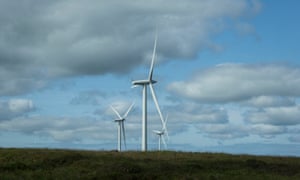Futures Forum: Stand up for local, clean energy
Futures Forum: The Big Six vs local energy providers >>> Or: how to keep new entrants out of the energy market
Meanwhile, the costs of large-scale energy production seems to be getting out of control:
Futures Forum: The future of Hinkley: "high cost and risky deal"
Ironically, one of the Big Six has just commissioned a study comparing 'local clean energy' with the likes of gas and nuclear - as reported in the Observer:
Onshore windfarms could be built in the UK for the same cost as new gas power stations and would be nearly half as expensive as the Hinkley Point C nuclear plant, according to a leading engineering consultant.
Arup found that the technology has become so cheap that developers could deliver turbines for a guaranteed price of power so low that it would be effectively subsidy-free in terms of the impact on household energy bills.
France’s EDF was awarded a contract for difference – a top-up payment – of £92.50 per megawatt hour over 35 years for Hinkley’s power, or around twice the wholesale price of electricity.
By contrast, Arup’s report found that windfarms could be delivered for a maximum of £50-55 per MWh across 15 years.
ScottishPower, which commissioned the analysis, hopes to persuade the government to reconsider its stance on onshore windfarms, which the Conservatives effectively blocked in 2015 by banning them from competing for subsidies and imposing new planning hurdles.
Keith Anderson, the firm’s chief operating officer, told the Guardian that onshore wind could help the UK meet its climate targets, was proven in terms of being easy to deliver, and was now “phenomenally competitive” on price.
“If you want to control the cost of energy, and deliver energy to consumers and to businesses across the UK at the most competitive price, why would you not want to use this technology? This report demonstrates it’s at the leading edge of efficiency,” he said.
“What we are asking for is a mechanism that underpins the investment risk,” said Anderson.The big six energy firm believes that with a cap on top-up payments so close to the wholesale price, onshore windfarms would be effectively subsidy-free – but the guaranteed price would be enough to de-risk projects and win the investment case for them.
The group believes that any political sting for Tory MPs concerned about public opposition to turbines in English shires would be removed because such a low guaranteed price would see only the windiest sites coming in cheap enough – which means windfarms in Scotland.
“You put these projects in the right place, you will get the correct level of resource out of them to keep the costs down and you will get public acceptance of people liking them,” Anderson said, citing the example of the company’s huge Whitelee windfarm near Glasgow.
Dr Robert Gross, director of the centre for energy policy and technology at Imperial College, said: “Onshore wind has been coming in at remarkably low prices internationally, so a contract for difference price of around £50-60 per MWh looks perfectly feasible for a good location in the UK, one of the windiest countries in Europe.
“Windfarms generally need fixed price contracts in order to secure finance, otherwise volatile electricity prices can make investing in wind risky.”
The Conservative manifesto was seen by some in industry as softening the party’s stance on onshore wind, saying that it did not believe “more large-scale onshore wind power is right for England” but not mentioning Wales and Scotland, which have some of the best potential sites.
The party also promised a review of the cost of energy which the Guardian revealed last week was likely to be led by the University of Oxford economist Dieter Helm, a critic of the cost of today’s renewable and nuclear power technologies.
However, Anderson said he saw the report, due in October, as a good opportunity. “I would find it surprising if anybody else doing a costs review of the energy sector comes to a fundamentally different argument [to the Arup report],” he said.
Leo Murray, of climate change charity 10:10, said: “It looks increasingly absurd that the Conservatives have effectively banned Britain’s cheapest source of new power.”
Drop in wind energy costs adds pressure for government rethink | Environment | The Guardian
.
.
.

No comments:
Post a Comment